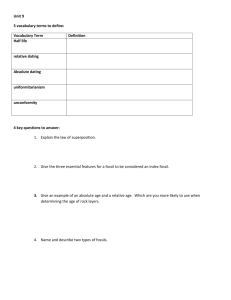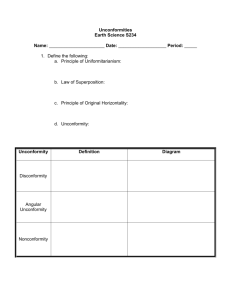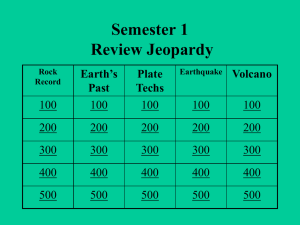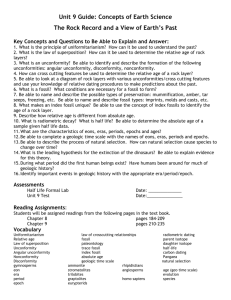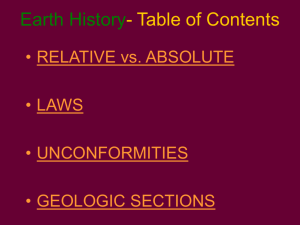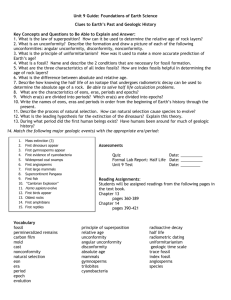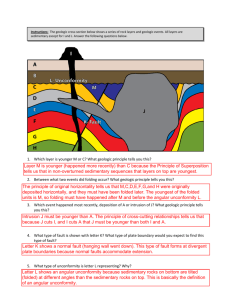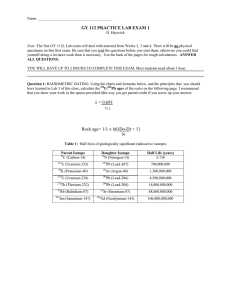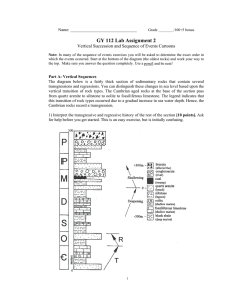Concept Review: Relative Time
advertisement
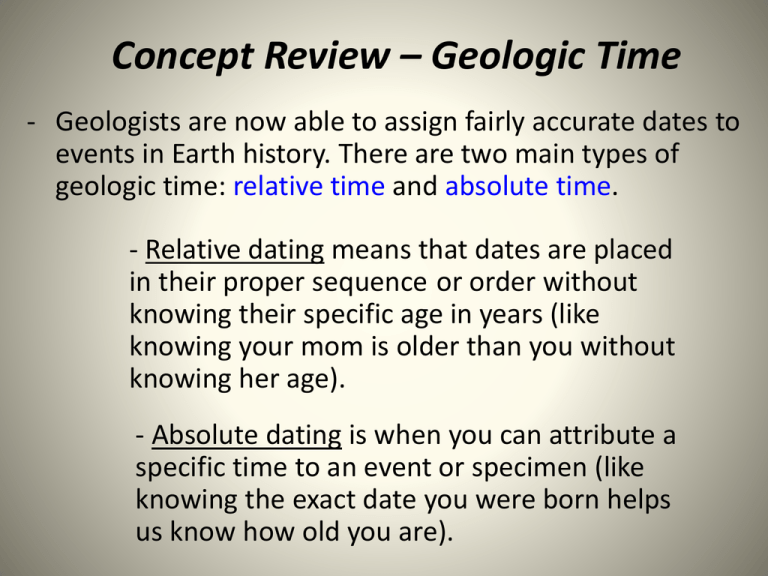
Concept Review – Geologic Time - Geologists are now able to assign fairly accurate dates to events in Earth history. There are two main types of geologic time: relative time and absolute time. - Relative dating means that dates are placed in their proper sequence or order without knowing their specific age in years (like knowing your mom is older than you without knowing her age). - Absolute dating is when you can attribute a specific time to an event or specimen (like knowing the exact date you were born helps us know how old you are). Concept Review: Relative Time - At first, geologists didn’t know what kind of timeline they were working with, so they created logical rules to help date things relatively. - Principle of Superposition: In layers of sedimentary rocks or lava flows, the youngest layer is on top and the oldest is on the bottom (assuming nothing has disturbed it since it was deposited). Concept Review: Relative Time - Principle of Original Horizontality: Layers of sediment are generally deposited in a horizontal position, then moved or upturned. Concept Review: Relative Time -Principle of CrossCutting Relationships: When a fault cuts through other rocks, or when magma intrudes and crystallizes, we can assume the intrusion/fault is younger than the rocks affected. Concept Review: Relative Time - Principle of Fossil Succession: Fossil organisms succeed one another in a definite and predictable order, so any time period can be recognized by its fossil content. Concept Review: Relative Time - Principle of Inclusions: An inclusion is older than the rock that contains it. Concept Review: Relative Time -Principle of Lateral Continuity: Sediments and lava flows are generally laterally continuous unless something breaks them or they taper off into something else. Unconformities Something happened here! But what?? An unconformity is a surface that represents a break in the geologic record. The rock unit(s) immediately above the break is/are much younger than that/those below. Usually represent buried erosional surfaces – parcel of geology is missing! Formation of an unconformity Unconformities Three types: 1) Disconformity: unconformity is parallel to layering, but there is a gap in the geologic record. (Typically erosional and hard to spot.) Look for weathering surfaces, boulders/pebbles of older rock in younger. 2) Angular Unconformity: Younger strata overly older rocks that were tilted/folded. 3) Nonconformity: A contact in which an erosional surface on a plutonic or metamorphic rock has been covered by younger sediments or volcanic rocks (i.e., unconformity separates different rock types). Disconformity Angular Unconformity Nonconformity
